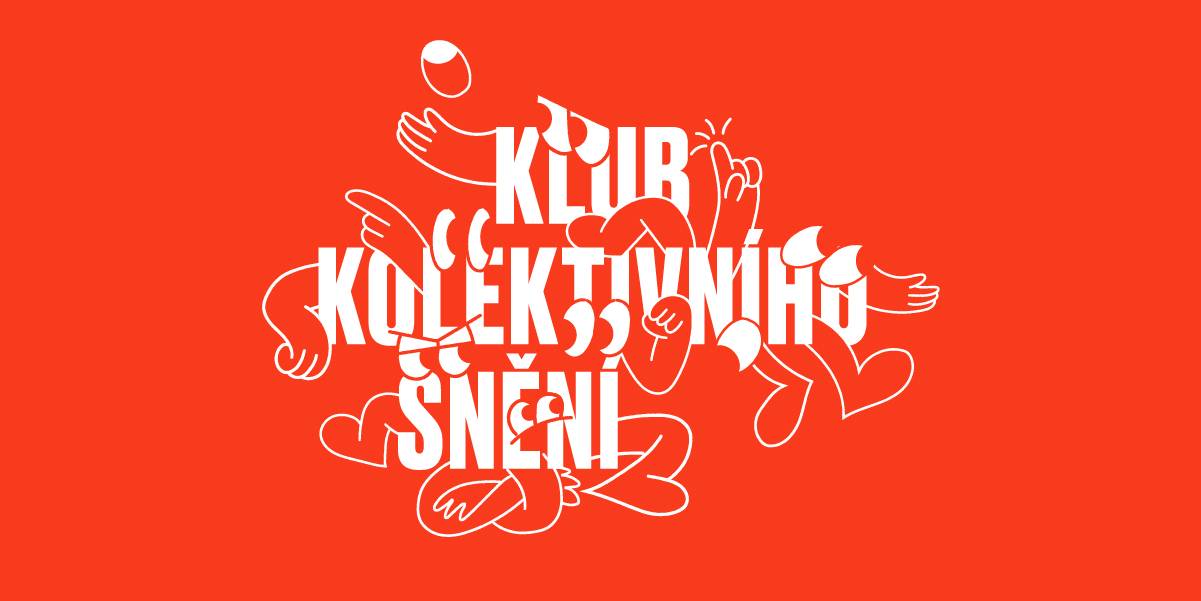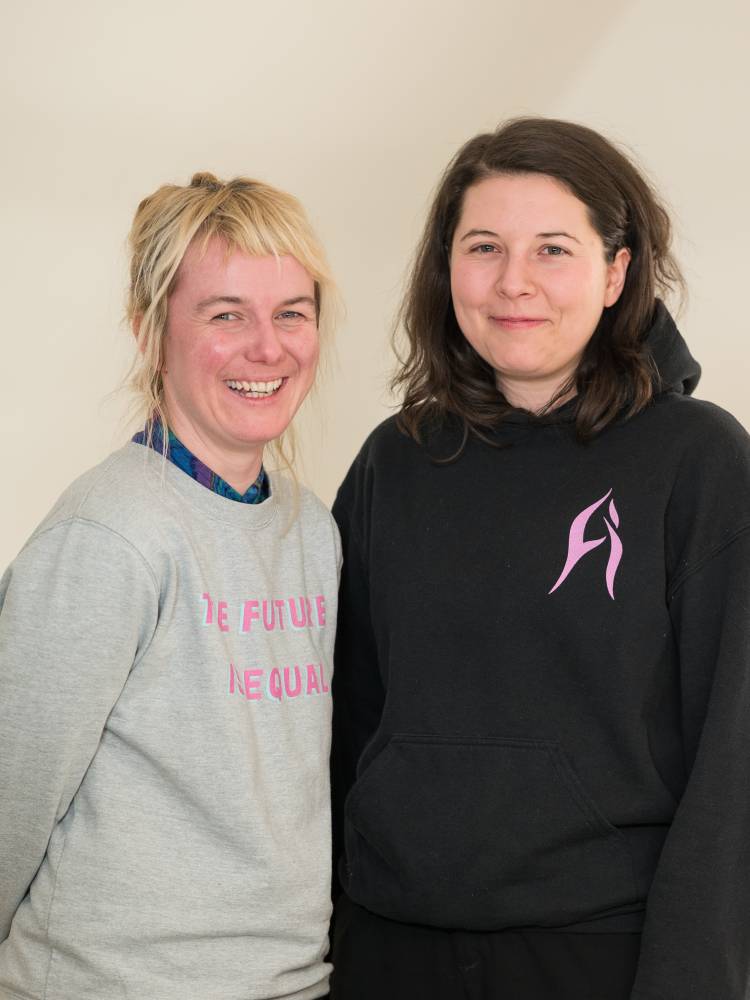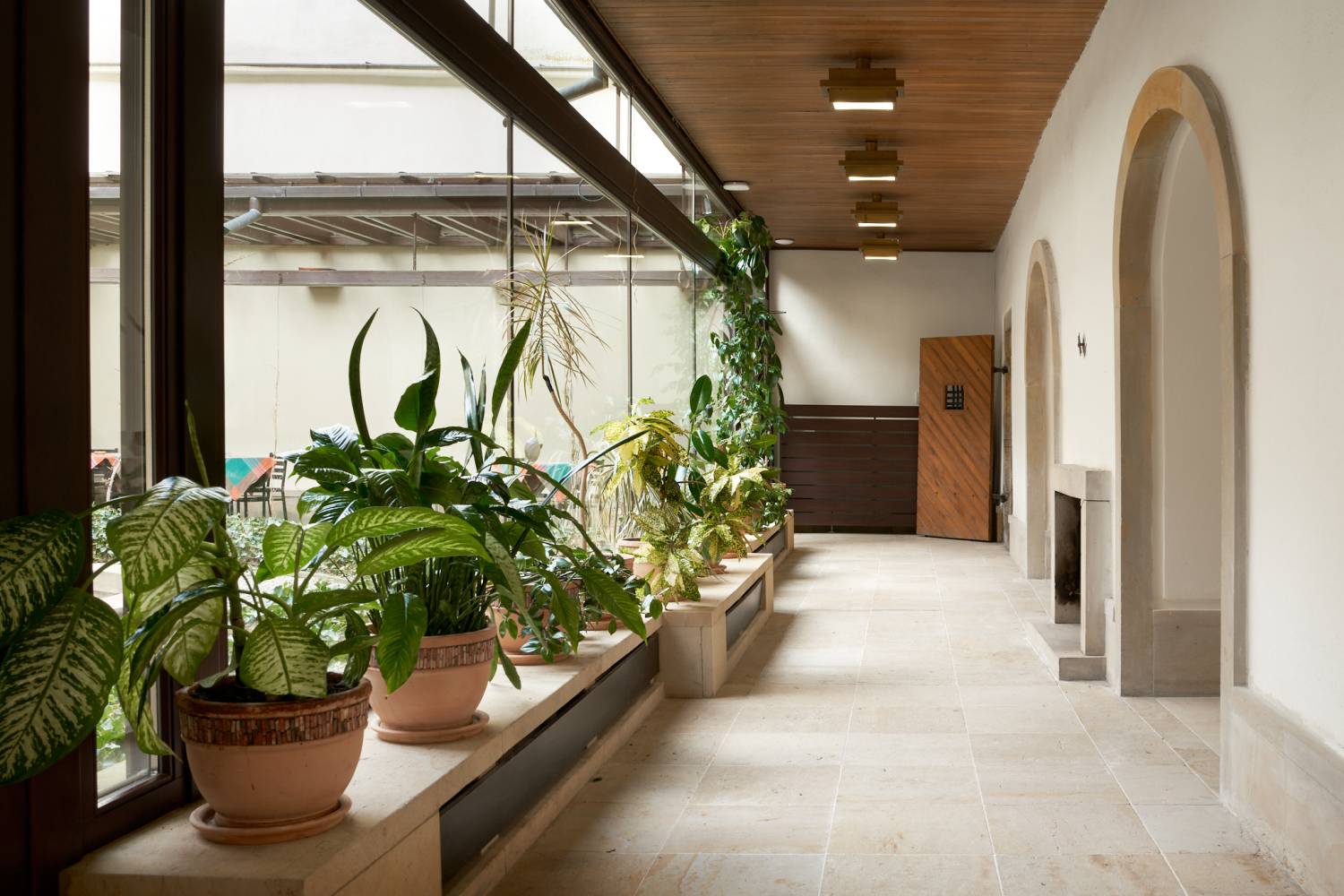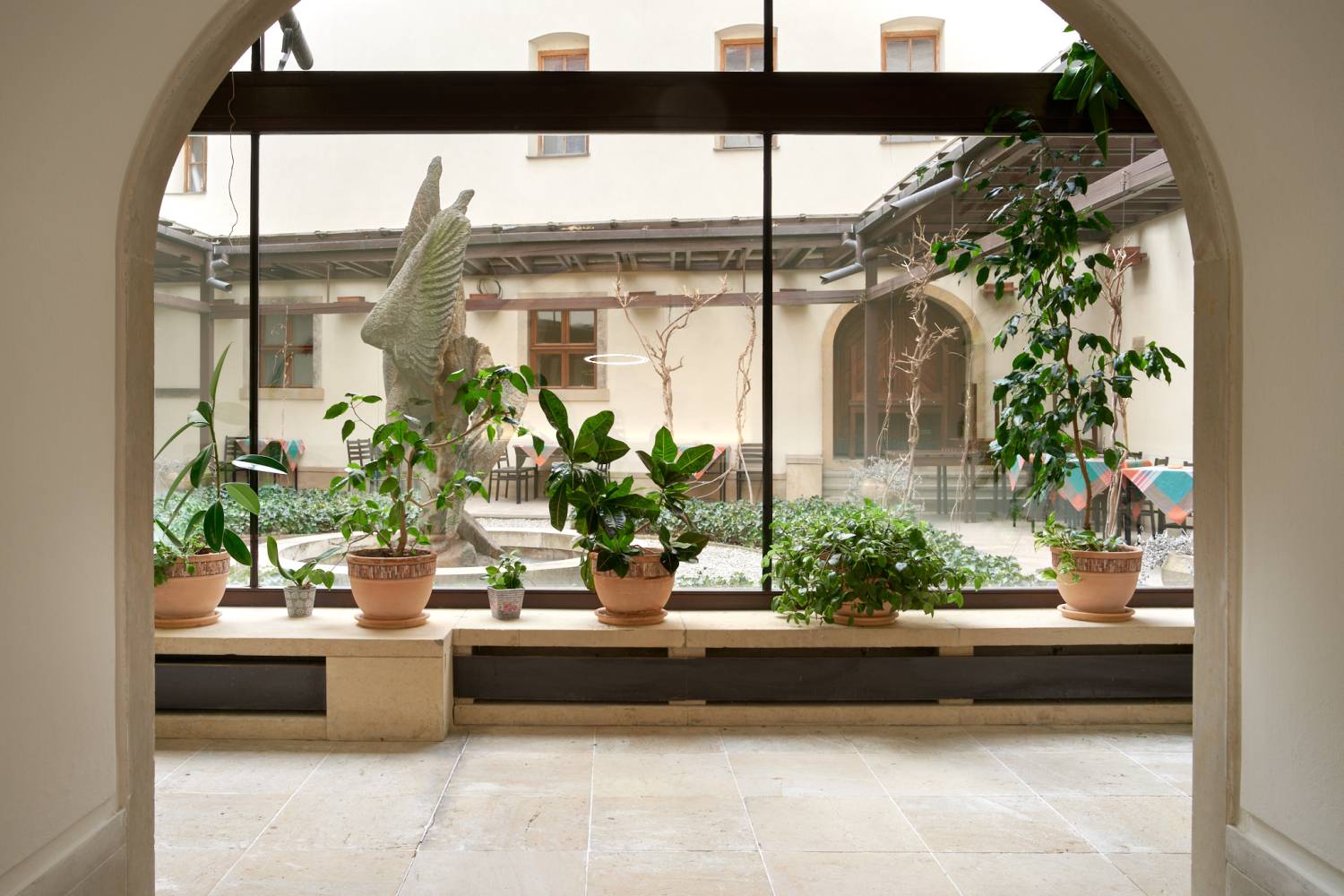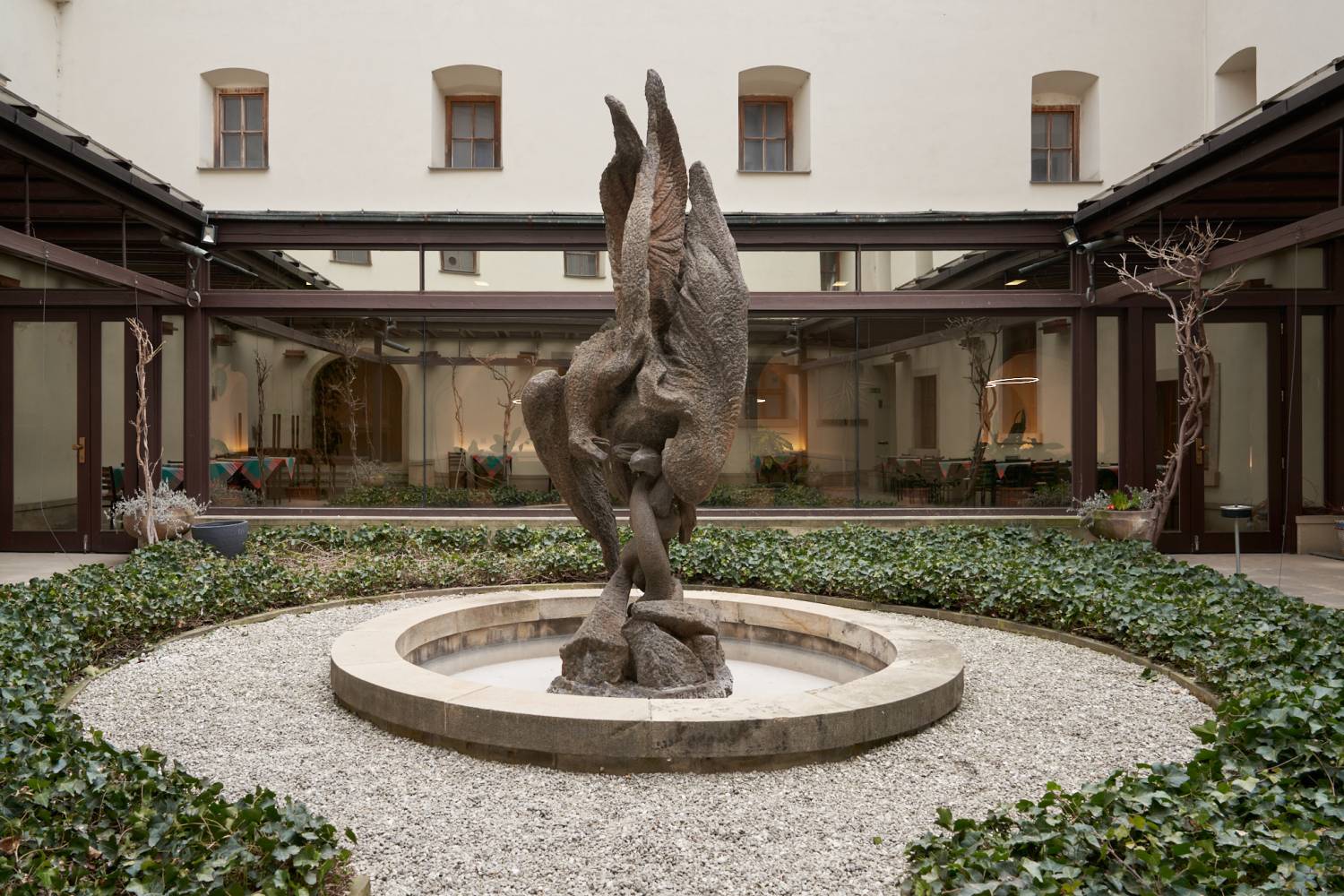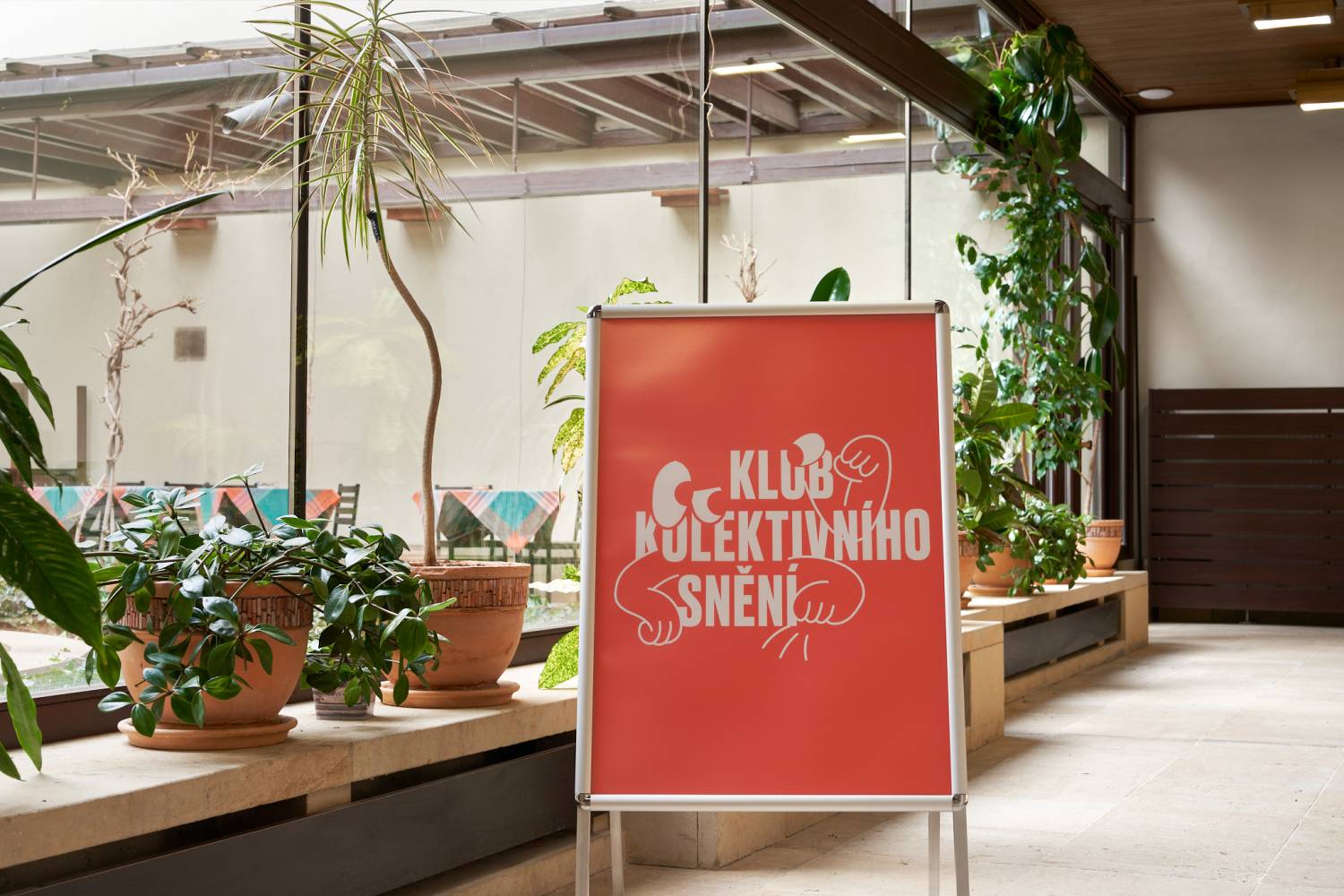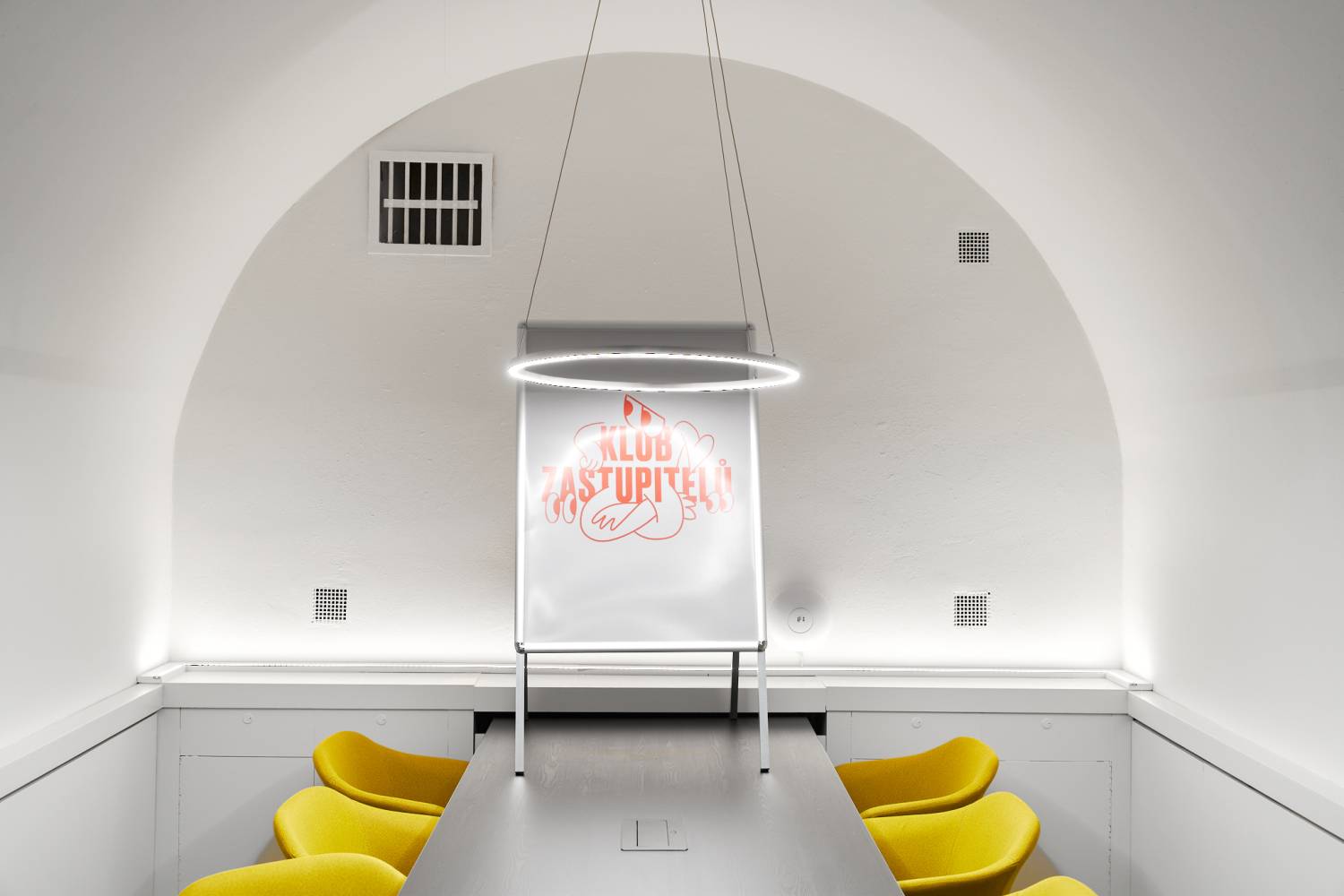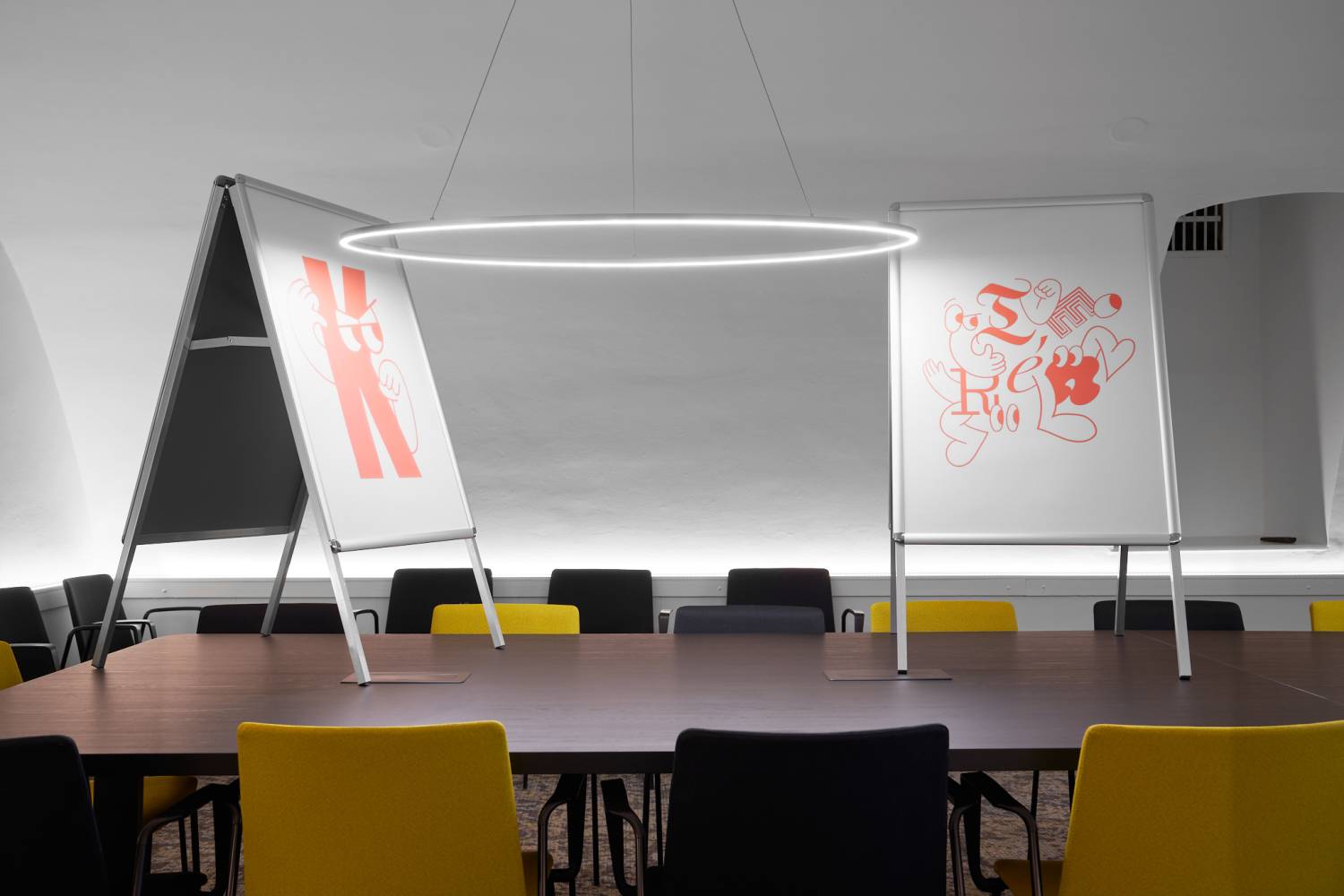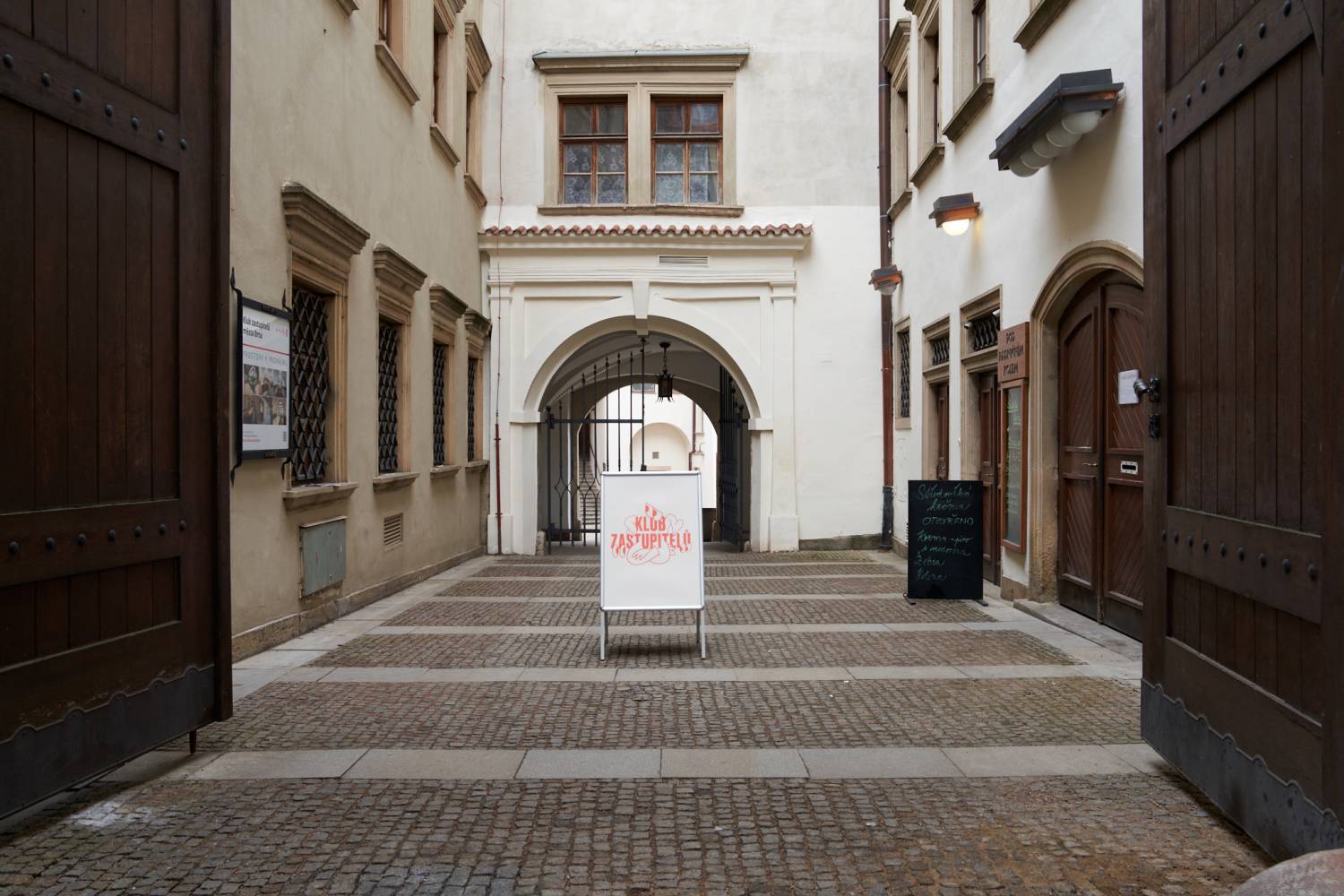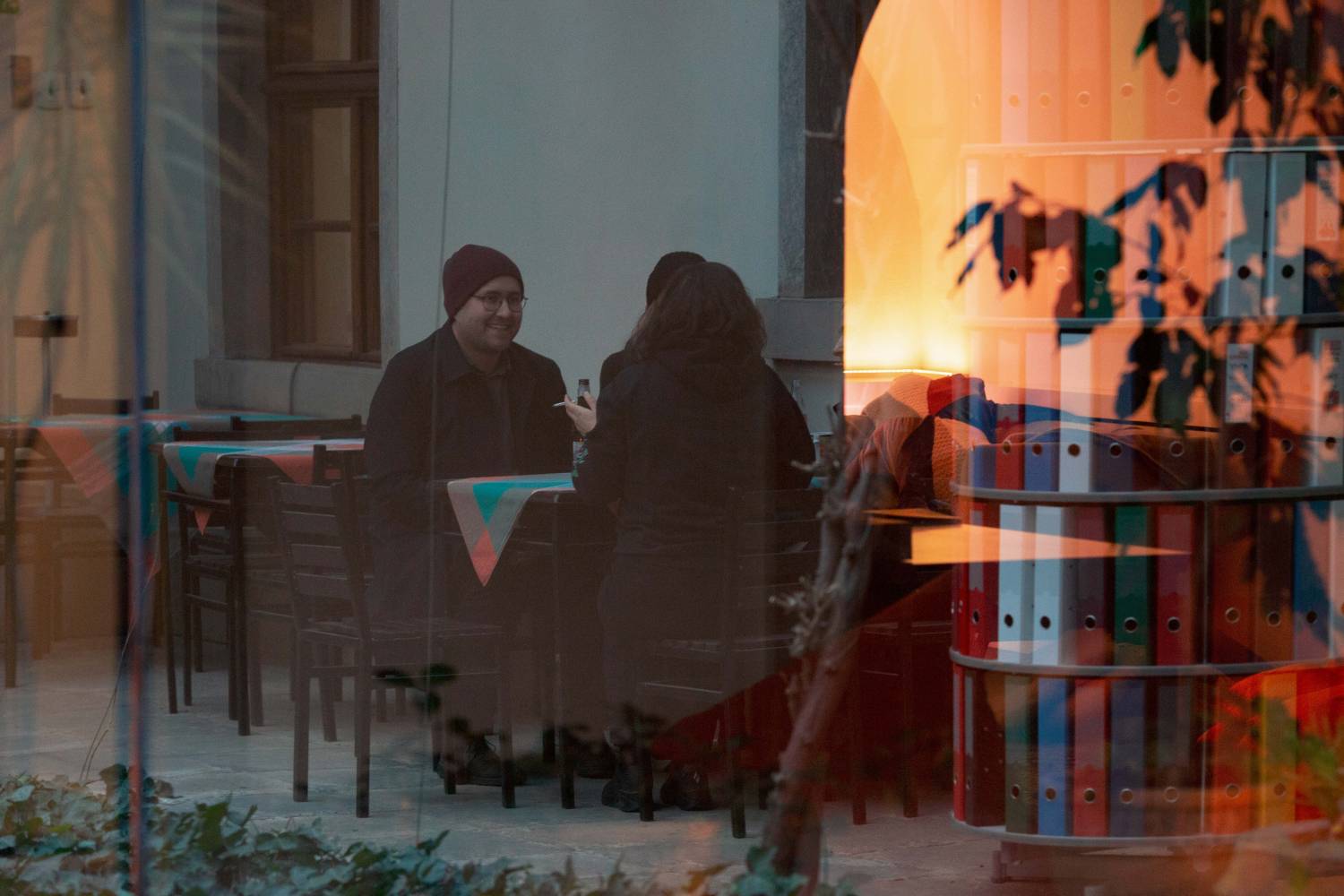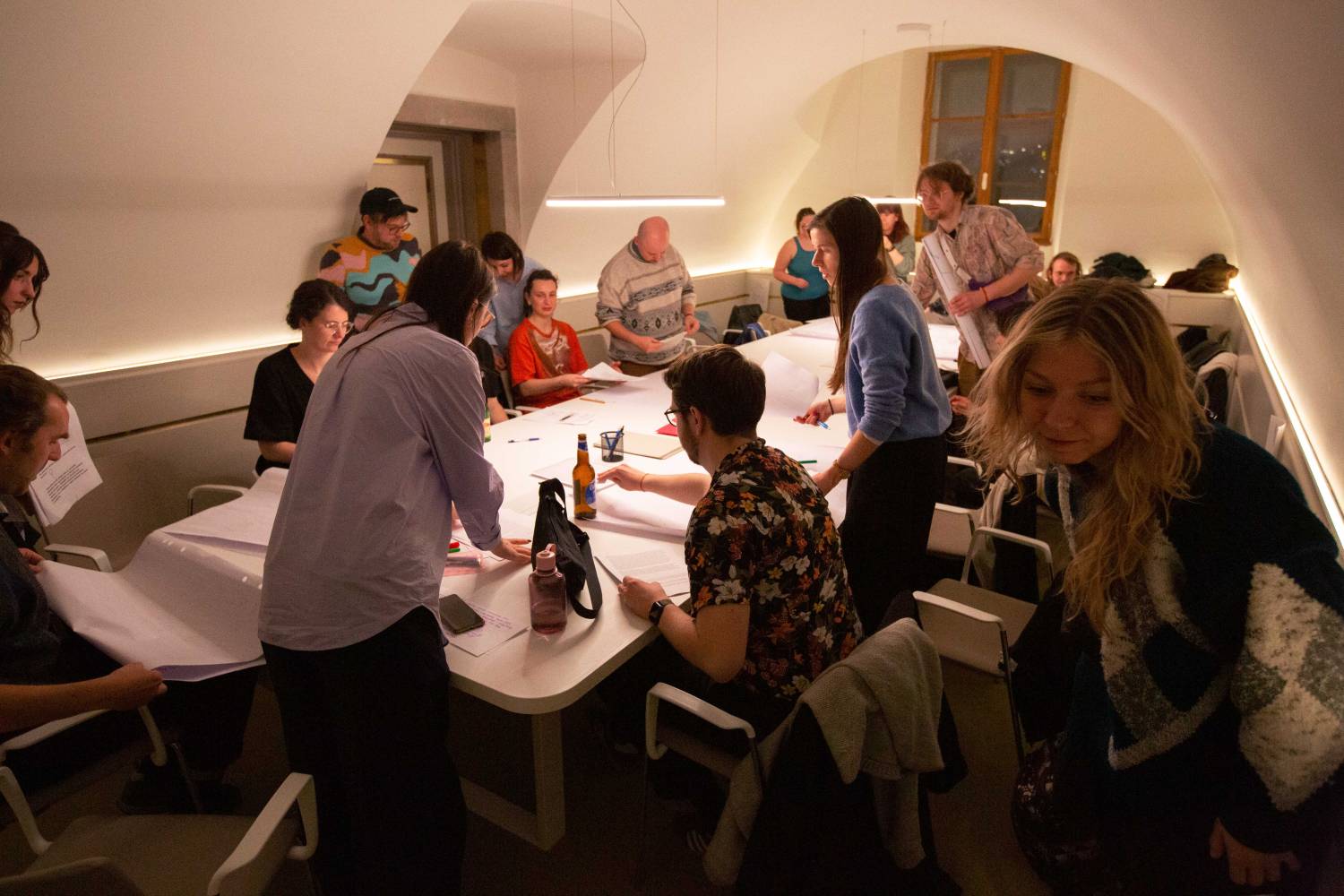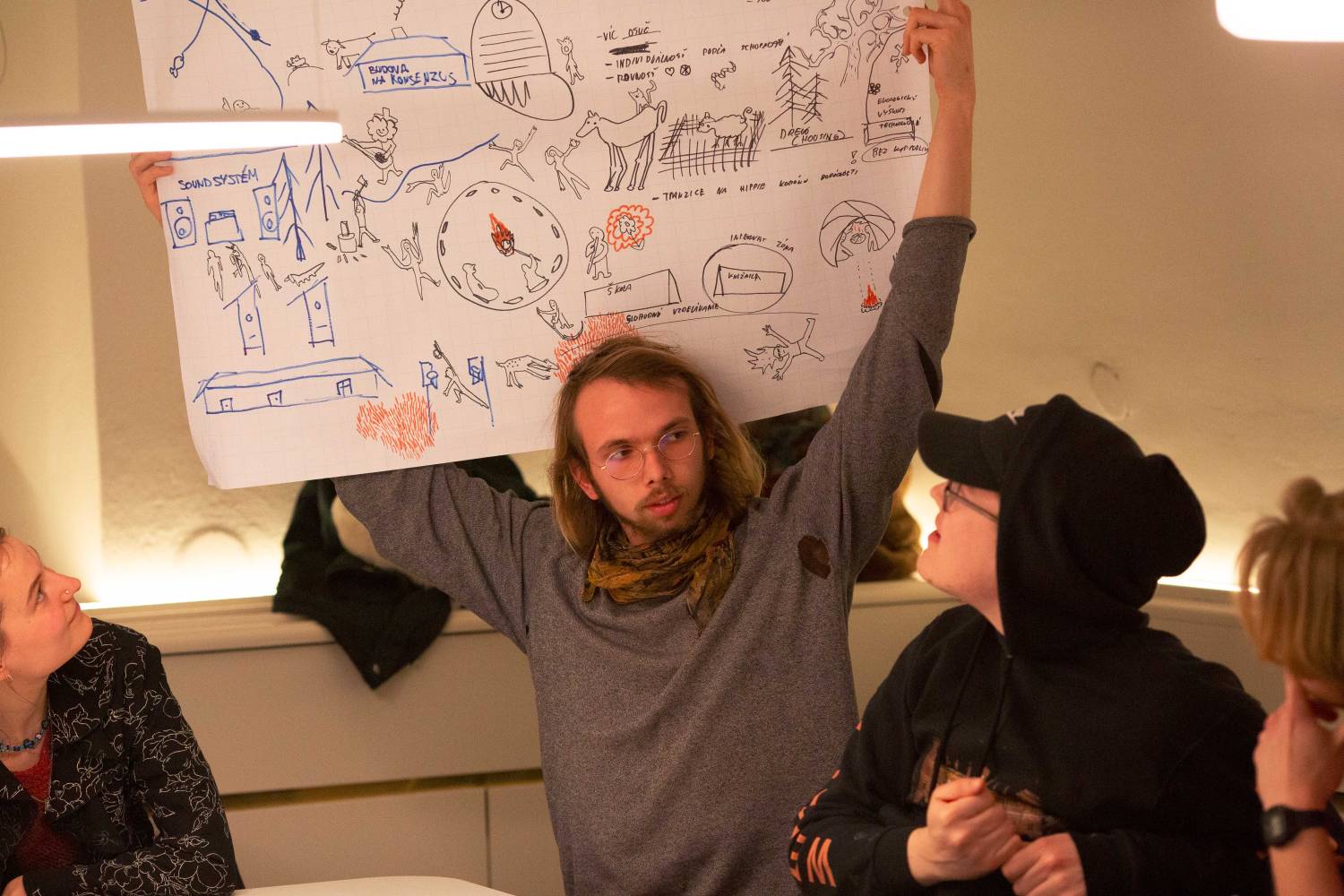For one Wednesday every month, Klub zastupitelů (City Councilor's Club) transforms into a clubroom for collective dreaming, where art, activism and academia coexist and create new imaginative interconnections. Throughout 2025, public meetings will be held here with the common link of imagining the more-than-real shape of the contemporary world. The programme for each event is prepared in dialogue with invited guests who will personally guide those present through a chosen form of collective dreaming, based on their artistic or research practice.
The curators of the Klub kolektivního snění (Collective Dreaming Club) are Jana Mikuš Hanzelová and Amálie Bulandrová.
Bio:
Jana Mikuš Hanzelová
Jana Mikuš Hanzelová studied theatre science at the Academy of Performing Arts in Bratislava. In 2014, she co-founded the cultural centre Diera do sveta in Liptovský Mikuláš, where she worked primarily as a dramaturgist and between 2021 and 2024 as its director. In 2018, she founded the international feminist festival Artwife.
Amálie Bulandrová
Amálie Bulandrová studied theatre science and art history at the Faculty of Arts of the Masaryk University in Brno. She subsequently studied art theory and history at UMPRUM in Prague, where she is currently co-director of the Fine Arts I studio. Since 2022, she has also been involved in the organisation and running of the Kafkárna/Centre for Art and Ecology at UMPRUM.
Autofictional dialogue between two friends and curators
Amálie Bulandrová, Jana Mikuš Hanzelová
My relationship with fiction was shaped from a young age by my mother, a marine biologist who traveled to the far reaches of the ocean to study coral reefs. Interestingly, she was always home in the morning making us breakfast. But my sisters influenced it even more: one could talk to animals, the other could communicate with the weather, and the third could read the thoughts of our toys and all the things around us. My mother was not actually a biologist, but a singer who lived a double life - the public one and the one in the small town where nobody knew her and where she visited to take care of the garden. We all had the ability to work magic, see the world in ways others couldn’t, and be exactly who we chose to be in our imagination.
Fiction, in its many forms, has so far been a constant in my life. As a child I found it in literature; the stories I devoured with great urgency were an escape from a world that was often incomprehensible and painful. The motivations of fictional characters seemed more understandable to me than real ones, despite the overtly obscure rules and authorial licenses so often coquettish and frivolous. Thanks to this steady supply of fantasy, I gradually began to return to this world; the stories I experienced taught me to understand and confront the everyday. I came back from the world of dreams to reality, the fictions armed me with understanding and courage. Art, however, continued to be a stable point when the day would churn and things would spiral out of control.
Fictional stories of all kinds are my favorite to listen to. I enjoy having them framed in some way, whether by a person, a portal, or even chalk. It took me a long time to understand that appropriating them and inserting myself into them is only the beginning. For what follows can be a laborious but wonderful part of concentrated practice, of directly manipulating established ideas and rearranging them into new contexts, structures and connections. Stories about human exceptionalism, rights, identity, morality, responsibility…all need to be broken down and reassembled – perhaps in a different way. An attempt to isolate the human self and incorporate other entities. It can be hard to kick-start such an imagination and visualize, say, a restructured ecological civilization. However, the arts can spark this process, reshaping the world through storytelling
Fictions grew with me and gradually transformed, they were no longer just a support, they were also a challenge to pursue my dreams. What seemed unimaginable was now becoming reality. Diera do sveta and the Artwife Festival were such fictions. A feminist festival in a small town? Pure delusion! But it is here and has become a shared imagination among all who are a part of it every year.
“Fantasy and myth are among the key spaces where the word of collective dreaming unfolds. It is in these intersubjective spaces that we generate patterns of possibilities to ‘stay with the troulve’ of our time.” The above quotation comes from “Fantasy and Myth in the Anthropocene: Imagining Futures and Dreaming Hope in Literature and Media,” whose authors (Marek Oziewicz, Brian Attebery, Tereza Dedinová) discuss how fantasy “performs” myth and thus helps to formulate visions of alternative ways of being with the biosphere. These are dreams with great potential for action. Dreams that may be unspeakable in “real life” or in other genres. Dreams that are uniquely our own yet could be shared. Let’s dream together.
We are entering Klub zastupitelů (City Councilor's Club) and launching the year-round collective dreaming club. We believe that a journey where the unconscious is raised into concrete conscious action through imagination, joy and playfulness can erode the crisis of imagination, so paralyzing and numbing at times, stultifying, resulting in the inability to engage and persevere in effective and meaningful activism. Let’s embrace dream-driven projects, show resistance through new mythologies and envision new narratives as a vital force in reshaping the everyday.
